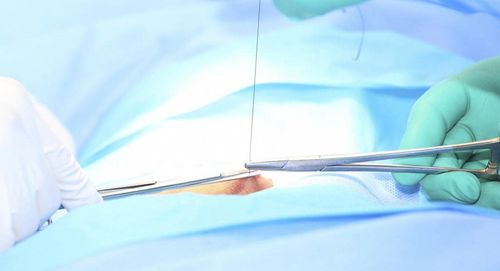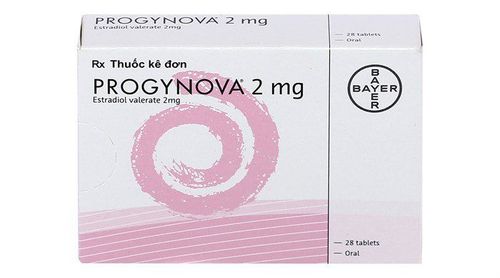After an IVF embryo transfer, monitoring is carried out similarly to a normal pregnancy. However, many patients wonder how long it takes after the transfer to detect a fetal heartbeat. To find the answer, please continue reading the article below.
1. When Is the Embryo Transfer Performed?
The process of embryo transfer is highly dependent on the quality and thickness of the endometrial lining, which are critical factors in determining the most suitable timing for the procedure. For individuals with regular menstrual cycles, the endometrial lining is receptive to implantation between days 19–23 of the cycle.
Physicians usually determine the timing of the embryo transfer based on the patient’s regular menstrual cycle and the response of the endometrial lining to hormonal therapy.
2. How Long After Embryo Transfer Can a Pregnancy Test Be Taken?
The embryo transfer process is performed after the egg and sperm have been fertilized in the laboratory. Once the embryos develop into blastocysts, the ones with highest quality are selected and transferred into the mother’s uterus within 48 hours. However, this timing is only feasible if the mother’s body is stable and the uterus is ready for implantation. If these conditions are not met, the embryos will be cryopreserved for transfer during a subsequent menstrual cycle.
For women who conceive naturally, a pregnancy test can typically be taken two weeks after ovulation. But how long does it take to detect a fetal heartbeat after an IVF embryo transfer? Usually, within 1 to 3 days after the transfer, the body may exhibit some noticeable changes. If closely observed, these signs can indicate up to an 80% likelihood of a successful implantation. However, for a more accurate result, it is recommended to wait 14 days before taking a pregnancy test. For even greater certainty, women can visit a hospital or specialized clinic to check hCG levels in the blood.
A level above 25 mIU/mL indicates up to a 90% likelihood of a successful implantation, which means you can rest assured for a healthy pregnancy.
3. When Can a Fetal Heartbeat Be Detected After Embryo Transfer?
About 14 days after the embryo transfer, pregnancy can be confirmed as the embryo has implanted in the uterus. At this stage, it is crucial to prioritize proper health care to ensure successful implantation and optimal development of the embryo.
Between the 5th and 6th weeks of pregnancy, women are advised to receive an ultrasound. At this stage, only the fetal echo may be detectable. Typically, a fetal heartbeat becomes visible between the 6th and 7th weeks. However, in some cases, the heartbeat may appear later, around the 8th to 10th week, depending on the mother’s physiology. Therefore, if the fetal heartbeat is not detected during an ultrasound at this stage, there is no need to be too concerned.
4. Healthcare After an Embryo Transfer
Immediately following an embryo transfer, women should receive the best possible health care regimen. This is essential to support the healthy development of the embryo, especially after successful implantation.
4.1 Physical Activity
The process of embryo transfer can leave the body in a weakened state. Besides, it is essential to allow time for the embryo to implant and adhere to the uterine lining. Strenuous activities and climbing stairs should be avoided; light movements are recommended instead.
4.2 Sexual Activity
Couples should refrain from sexual activity before and during the early stages post-transfer. Sexual stimulation may cause uterine contractions, which potentially disrupts implantation.
4.3 Personal Hygiene
Statistics indicate that approximately 1% of women experience infections after an embryo transfer. During the IVF procedure, inserting a catheter into the uterus may cause slight bleeding or inflammation. However, these situations rarely impact pregnancy.
Women should maintain daily personal hygiene. Daily washing, gentle bathing, and frequent changing of undergarments are strongly advised.
4.4 Balanced Nutrition
Establishing a balanced diet is crucial after an embryo transfer. Protein-rich foods such as chicken, pork, beef, shrimp, and dairy products should be prioritized. Spicy, acidic, or overly salty foods should be avoided. A diet rich in vitamins, minerals, and fiber from fruits and vegetables is recommended to minimize constipation and diarrhea.
4.5 Cautions on Medication Use
Some medications may contain substances that pose a risk for congenital abnormalities, including those affecting the fetal heart. Maintaining regular exercise and a strong immune system can reduce the need for medications. When necessary, only take medications under a physician’s guidance to ensure safety for both mother and baby.
5. Monitoring Pregnancy After Embryo Transfer
Monitoring after embryo transfer follows the timeline of a standard pregnancy. Women should keep track of key milestones such as:
- Weeks 2–3: Embryo transfer is completed.
- Week 4 (2 weeks post-transfer): Perform a pregnancy test.
- Week 5 (3 weeks post-transfer): First ultrasound should be performed.
- First 12 weeks: Regular check-ups 1–2 times per week.
- Week 12: Conduct a double test for genetic screening.
- Weeks 16–18: Perform triple test for additional screening.
- Week 22: Ultrasound to evaluate fetal anatomy and detect congenital anomalies.
- Weeks 24–28: Screen for gestational diabetes.
- Weeks 27–32: Assess maternal Rh-negative status.
- Week 32: Check placental function and fetal organ development.
- Week 36 onward: Weekly check-ups until delivery.
In summary, how long after an IVF transfer can you hear a heartbeat? Usually, after 14 days, a pregnancy test can confirm pregnancy. At this time, you may also have an ultrasound to detect the baby’s heartbeat. Stay calm and focus on maintaining a nutritious diet and proper rest to ensure good health.
To arrange an appointment, please call HOTLINE or make your reservation directly HERE. You may also download the MyVinmec app to schedule appointments faster and manage your reservations more conveniently.













